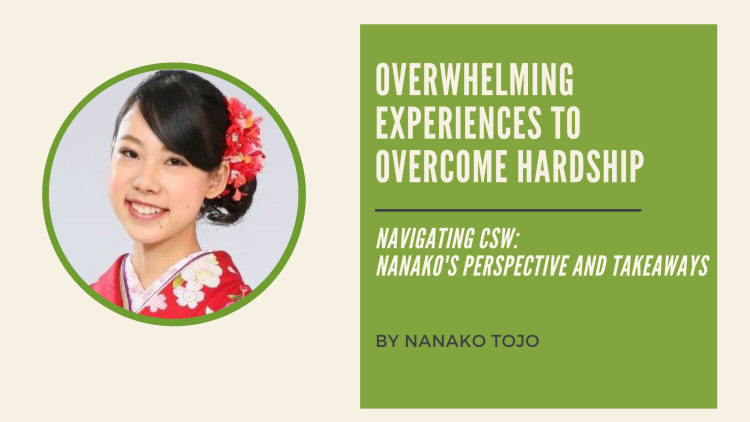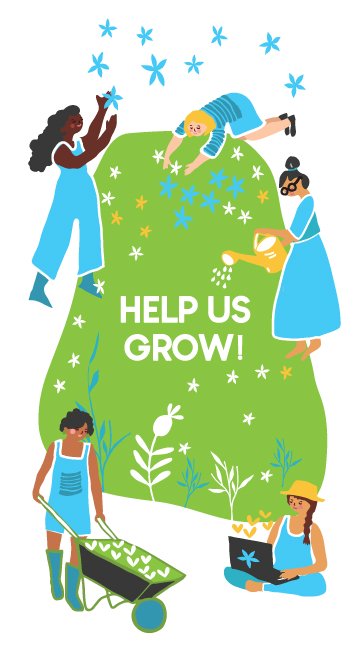Navigating CSW: Nanako’s Perspective and Takeaways
It was six years ago that I first learned about the Commission on Status of Women (CSW) by the UN Women. Since then, I have longed to attend it in person and finally, I made it. My goals of joining the 68th CSW were 1) to share the young Japanese woman’s hardships with feminists all around the world and call for authorities’ actions for transformations and 2) to build networks to scale up my team’s Rise Up! Leadership Workshop for school students. I could achieve the goals by holding a workshop and participating in various events. I would like to share my learnings with the following 4 keywords.
#1 Safe space

I reconfirmed the significance of a safe space to share powerful stories. In the workshop I conducted with 6 inspiring YWCA of Japan’s delegations, I shared our hardships in everyday life. My hardship related to microaggression which I had been exposed to in all aspects of my life. I encountered gender-based discrimination when working, chatting with my relatives or friends, and even watching TV. During preparation, I sometimes found it difficult to tell a bitter story since I might become too emotional to finish. However, in the safe space, I felt comfortable sharing my vulnerability with many YWCA sisters participating from different continents. In other events that I attended, real-life stories that other persons shared moved me. This experience deepened my commitment to creating safe spaces where people can share their stories meaningfully and authentically.
Safe spaces are crucial for self-care too. During the intensive two weeks of the CSW, the Community Care Collective set up rest areas specifically for youth, by youth. To be honest, I was so exhausted on the last day that I could barely keep listening to the presentations. I was on the verge of tears, knowing I would soon return to a daily life with few safe spaces and many challenges. The care space revitalized me, making my stay in New York much more productive and meaningful.

#2 Inclusion
During the CSW, I could not stop thinking about whether the CSW was inclusive for all. As a young woman from Japan, I often felt excluded due to the structure, language, and nationality dynamics at play. I encountered tokenism at official events and struggled with unfamiliar terminology. Some speakers used context-specific words, assuming everyone understood, which only heightened my sense of exclusion. I also felt that the “Asia Pacific Region” often did not include Japan as well as East Asia. We were not invited to participate in some events and our perspectives were not always considered. We have different gender equality challenges compared to other countries and would like our voices to be heard.
#3 Funding
The concept and the importance of feminist funding were eye-opening. This year’s priority theme focused on it, but I wasn’t aware of feminist funding challenges and impacts before. At the World YWCA event, I acknowledged the positive impact with a remark by one of the panelists Vrushali from India: “With feminist funding, I could expand local activities to global ones.”

In the CSW Youth Forum by the UN Women, I found a seat for those who could not join in person. The reasons included visa and cost. I was lucky enough to travel to the US without a visa and to narrowly finance my travel. Now I am eager to advocate for gender responsive budgeting.
#4 Education
What I also reaffirmed was the significance of education for adolescent girls. In a side event “What Adolescent Girls Want: Priorities and Solutions,” a speaker said that education enabled young girls to cast doubts about reality and think about what they could do to change the status quo. I could not agree more with the remark because it totally aligned with the Rise Up! Leadership Workshops that my team has conducted for school students. I felt proud to lead such meaningful workshops. Additionally, I became further eager to improve and scale up the workshops to empower the schoolgirls.
The learnings have motivated me to step forward. My team is planning to organise the first intercultural Rise Up! Leadership Workshop by inviting YWCA sisters I met in New York. I became confident in advocating for gender equity because I gained new learnings, networks, and more. The experiences were overwhelming, but they have strengthened my leadership journey to overcome hardships toward gender equity






